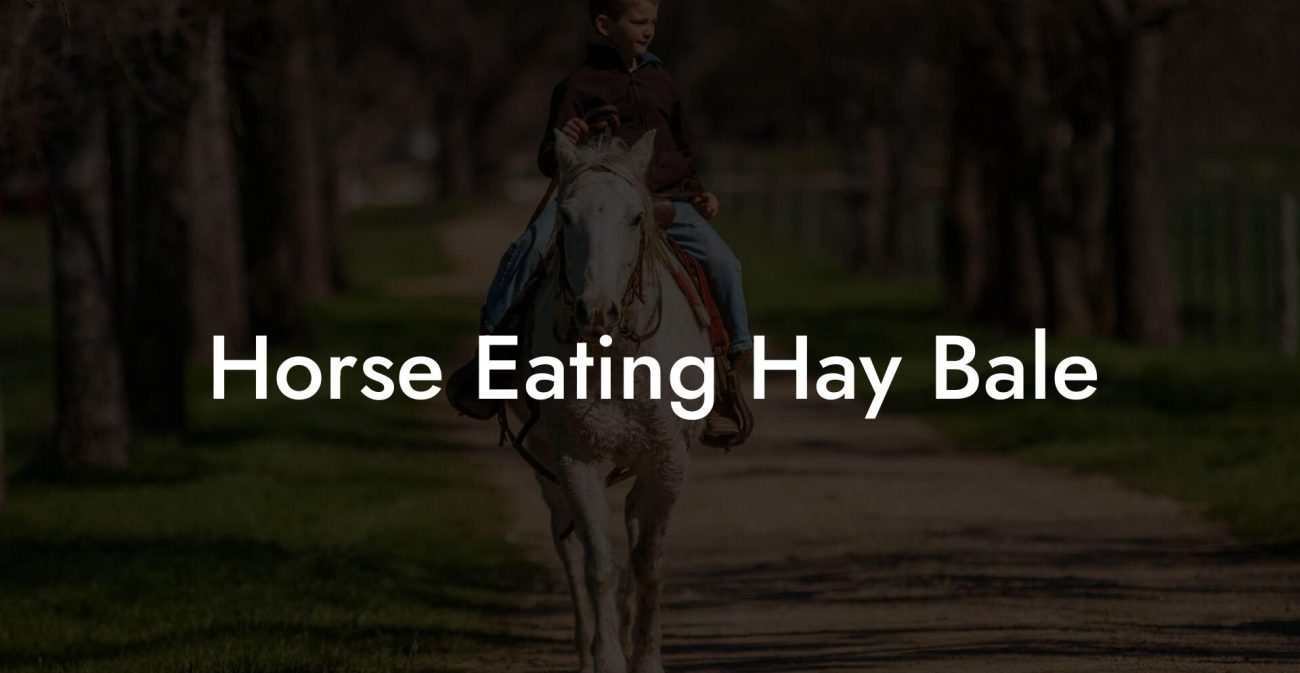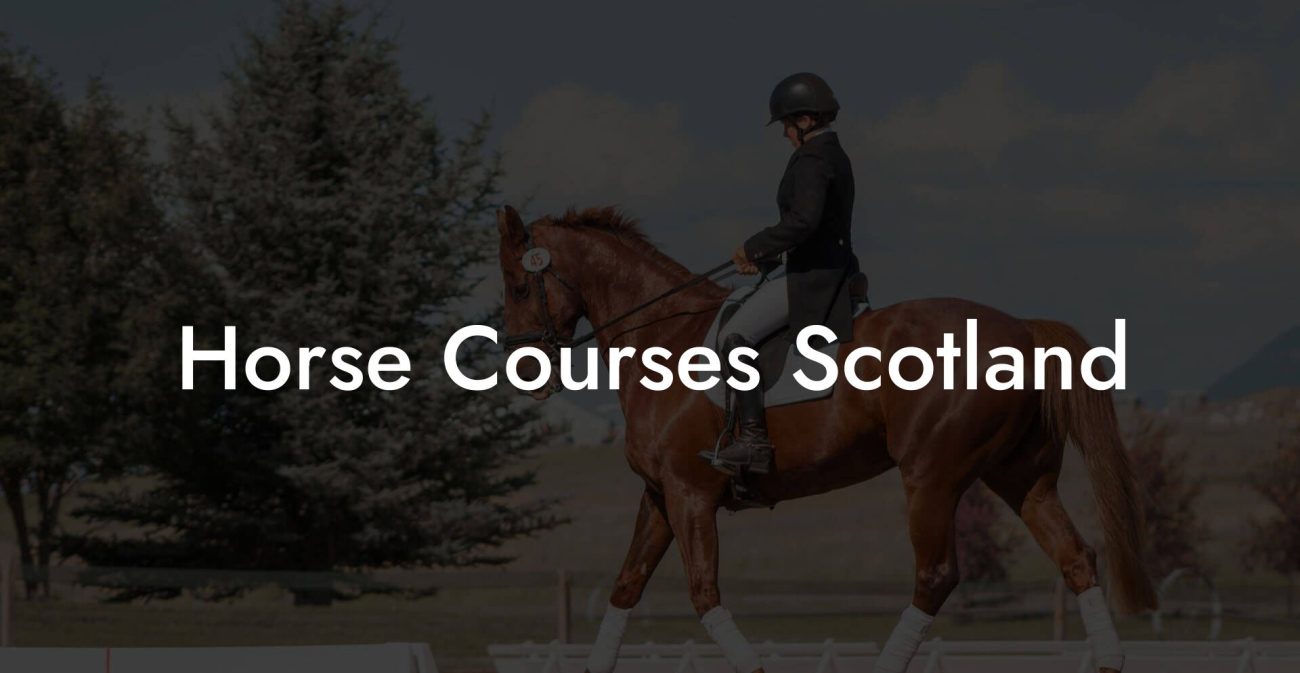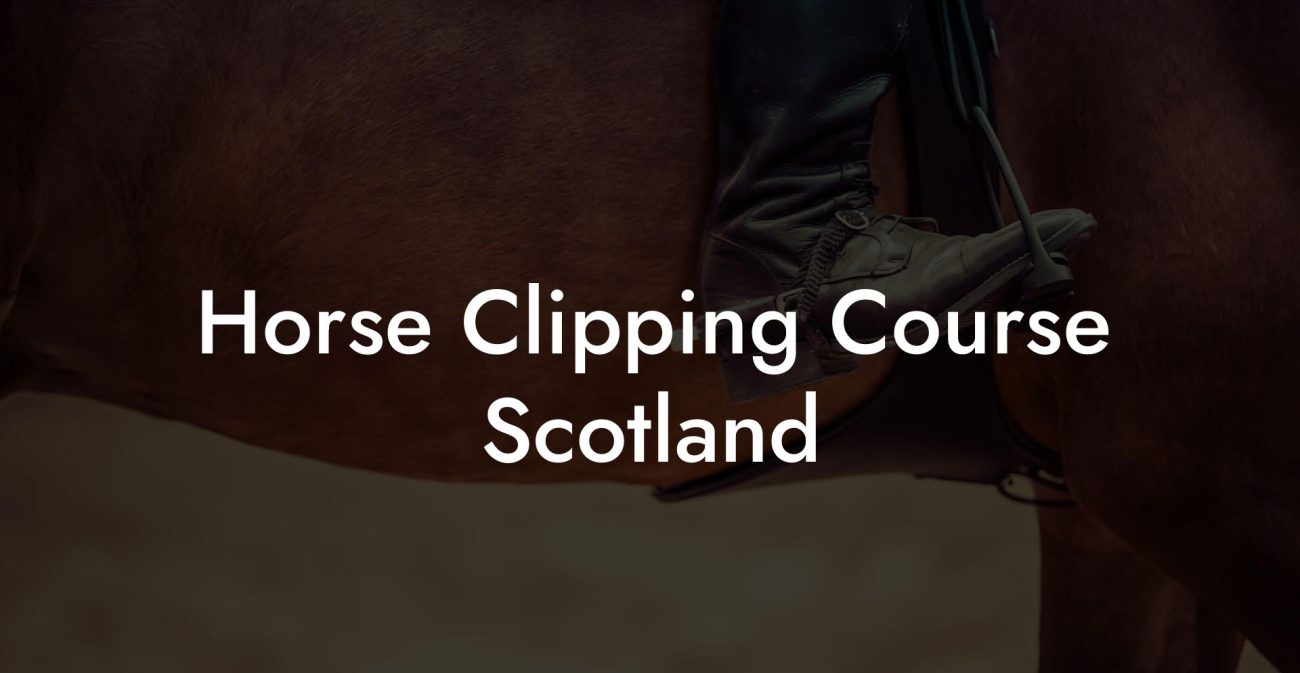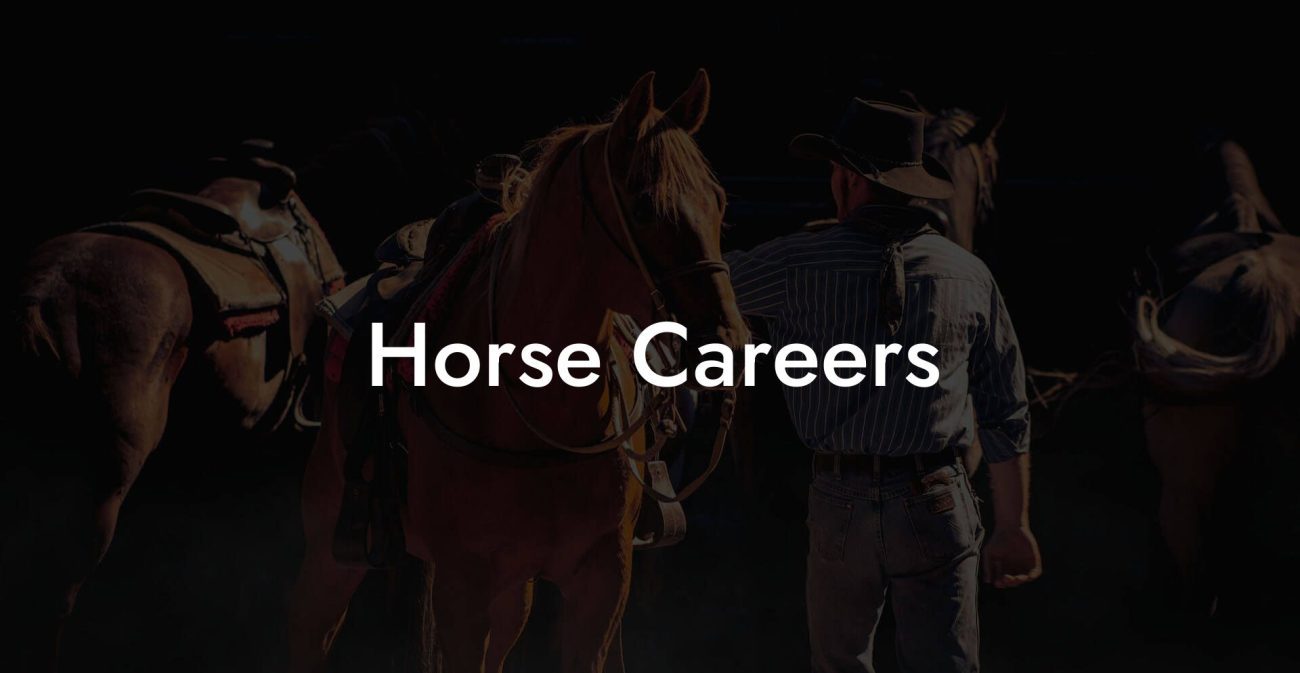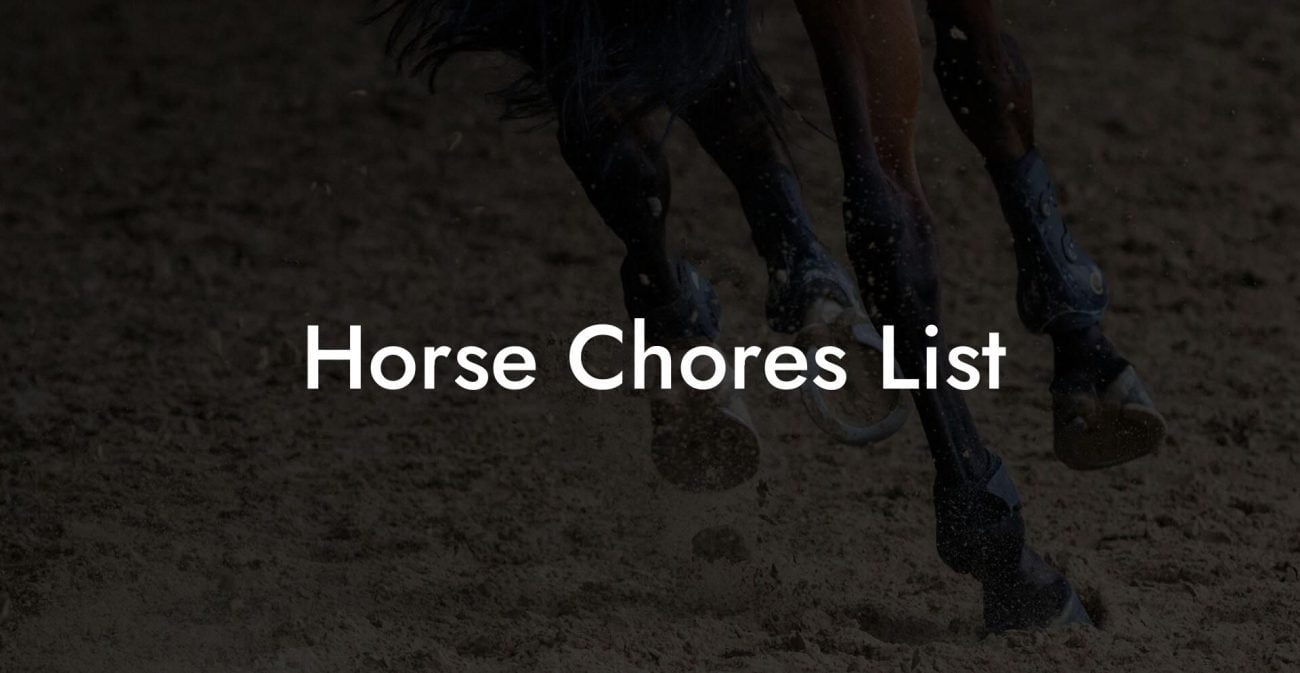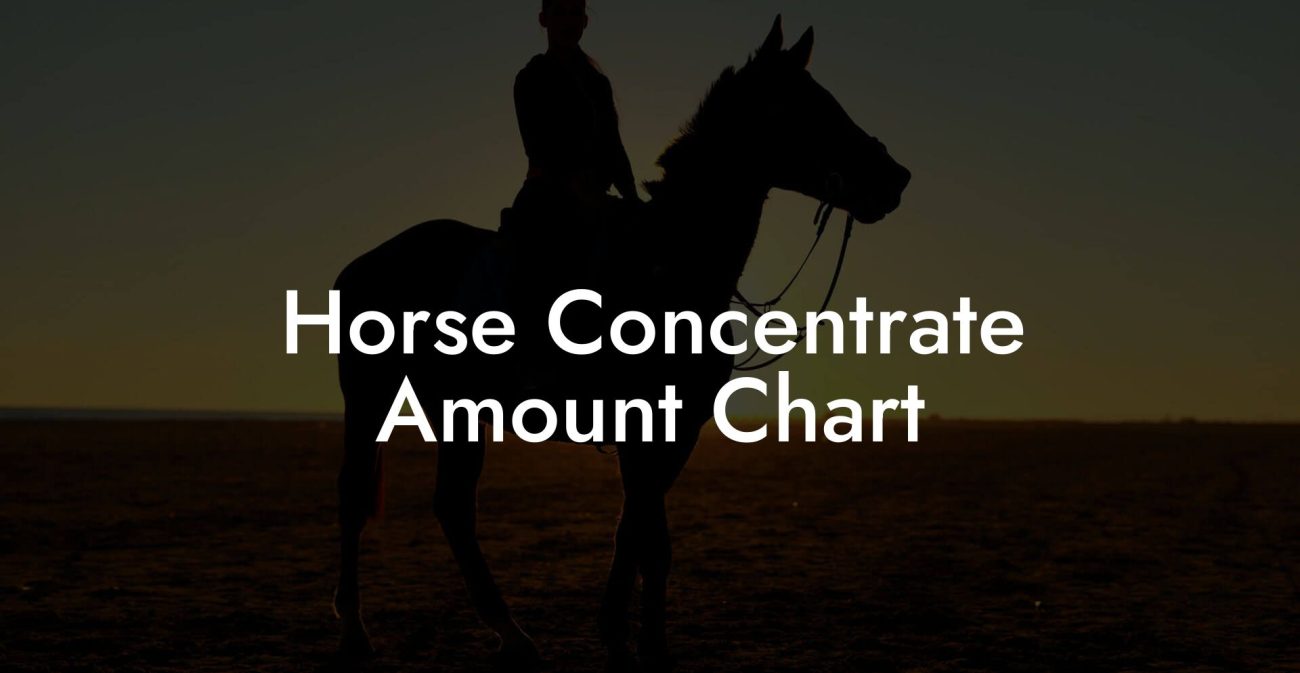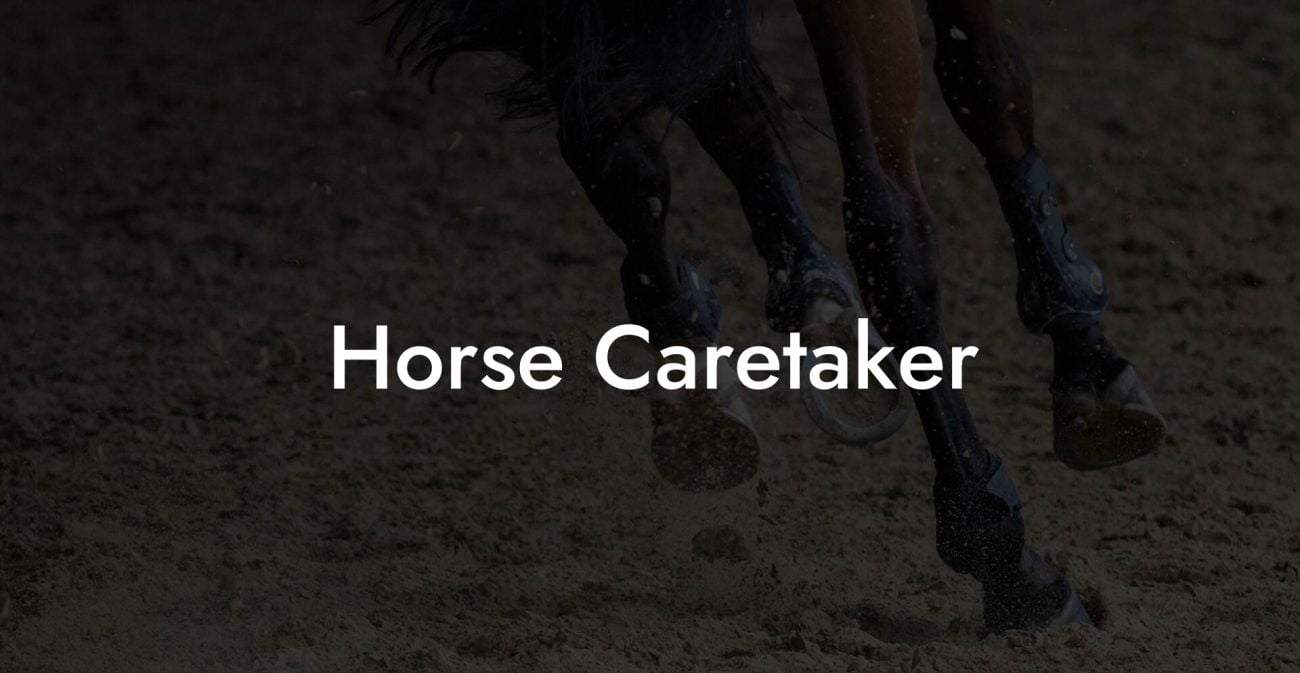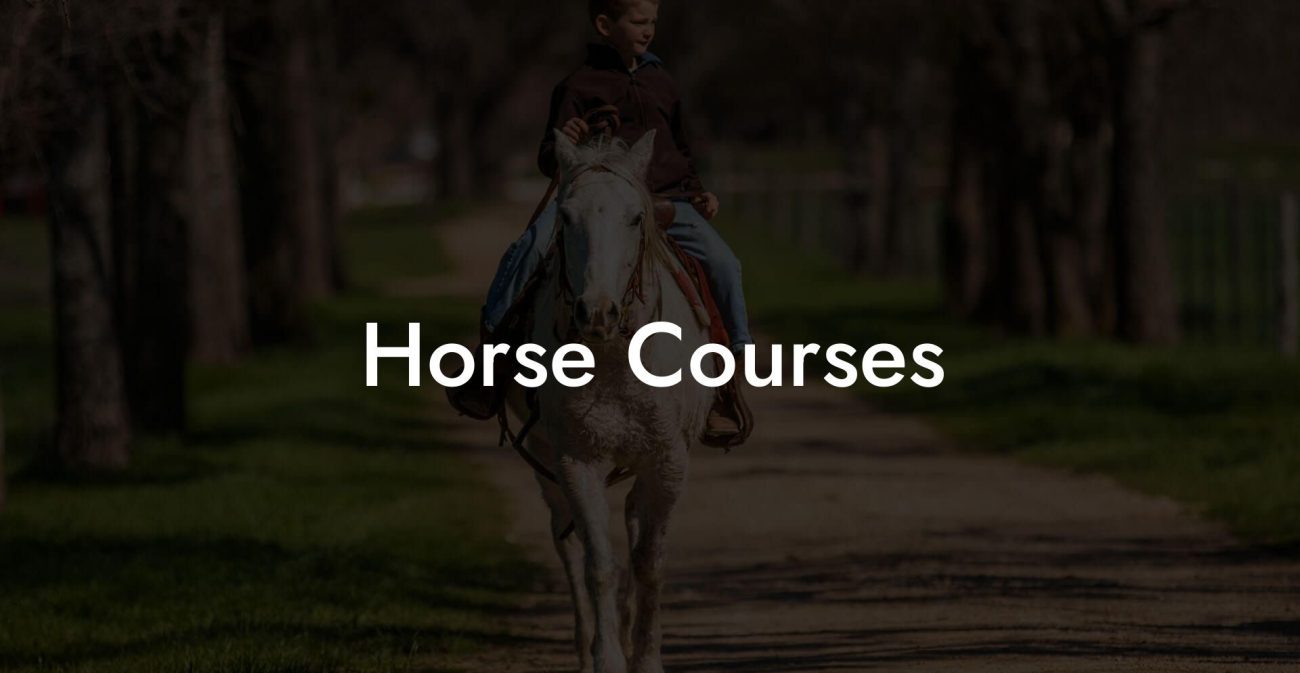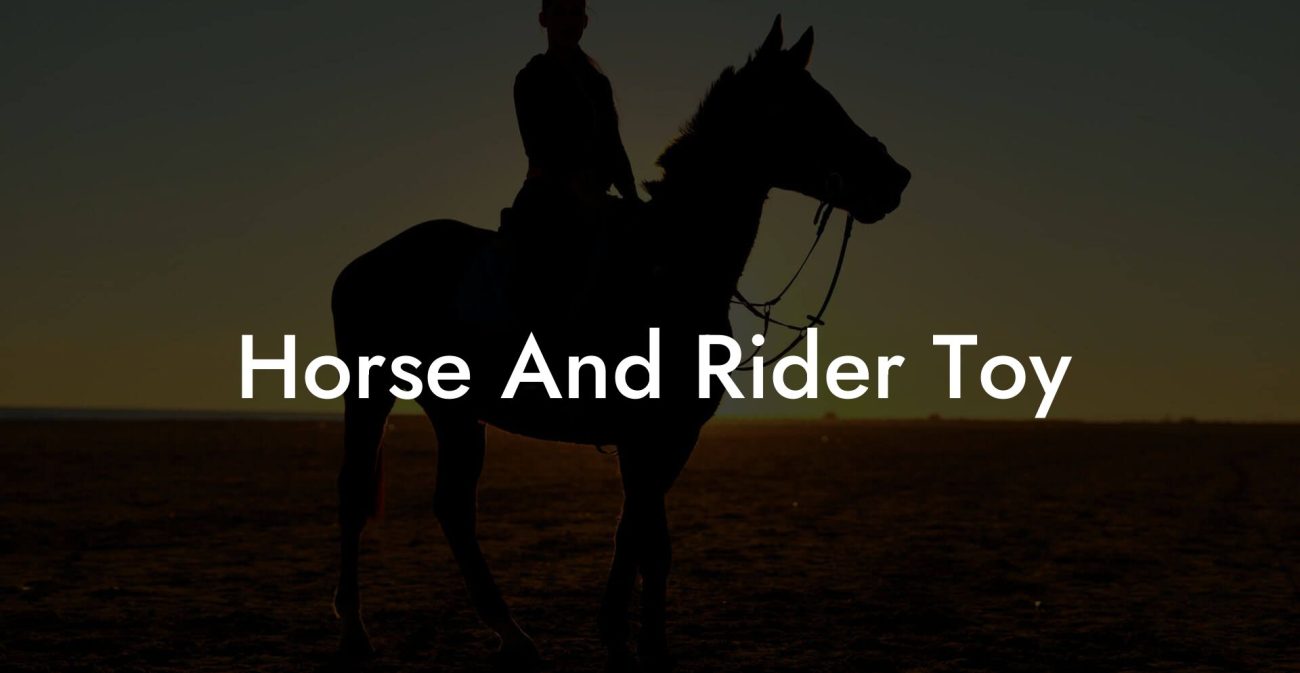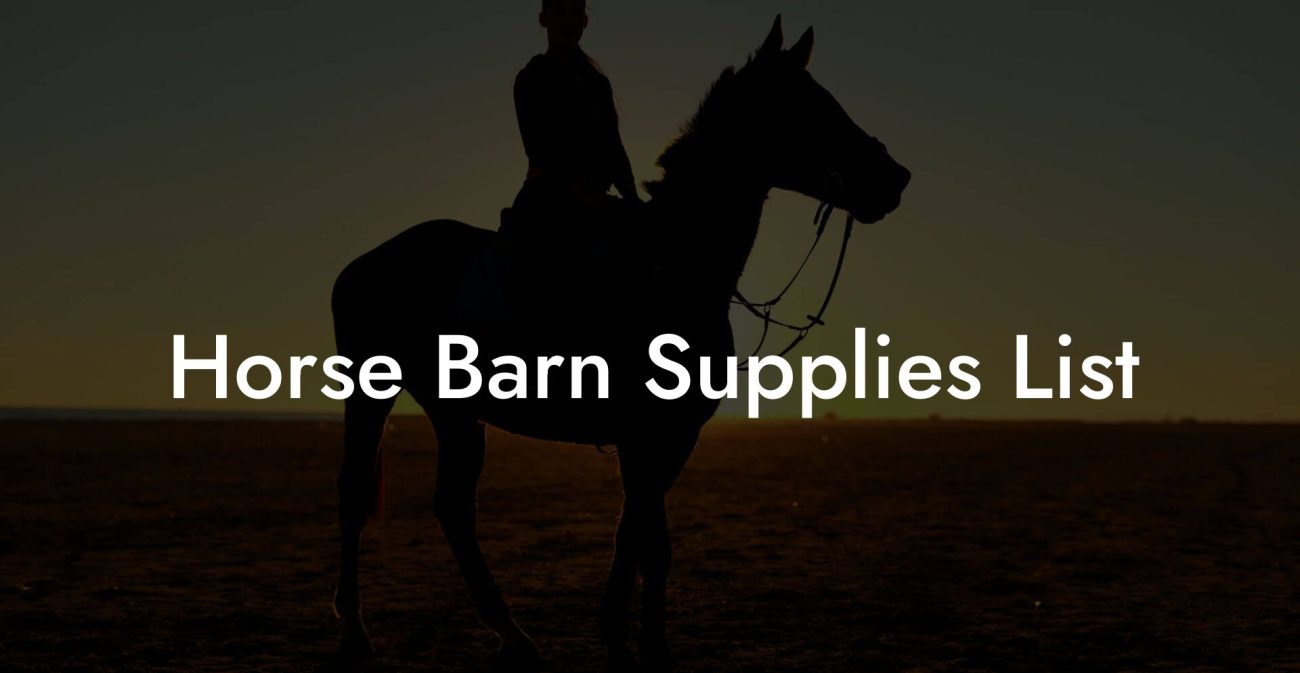So you’re saddling up for an epic journey into the world of horse husbandry, where caring for these majestic creatures meets savvy, down-to-earth management skills and a dash of modern technology, all served with a generous side of wit. Horse husbandry isn’t just about feeding and grooming; it’s a vibrant tapestry of traditions, innovations, and community that brings together passionate enthusiasts who treat their equine pals like family. Whether you’re a seasoned rider or just got your first starter pony, this detailed guide is your ticket to mastering the art and science of horse care, equine management, and stable maintenance with style.
Quick Links to Useful Sections
- What Is Horse Husbandry?
- A Brief History of Horse Husbandry
- The Fundamental Pillars of Horse Husbandry
- Feeding Your Equine Friends: The Nutritional Blueprint
- Grooming: More Than Just a Pretty Mane
- Stabling and Pasture Management: Crafting a Horse’s Haven
- Stable Design and Maintenance
- Pasture Management
- Exercise and Training: Keeping the Canter Alive
- Health and Veterinary Care: The Cornerstone of Horse Husbandry
- Breeding and Reproduction: Nurturing the Future of Equine Excellence
- Sustainable and Eco-Friendly Horse Husbandry
- Embracing Technology in Modern Horse Husbandry
- Training Techniques and Behavioral Management
- Resources and Community Support: Your Next Steps
- Overcoming Challenges in Horse Husbandry
- Integrating Horse Husbandry Into a Modern Lifestyle
- Practical Tips for New Horse Owners
- FAQs About Horse Husbandry
- Your Journey Towards Mastering Horse Husbandry
What Is Horse Husbandry?
At its core, horse husbandry is the dedicated art and science of caring for horses, blending traditional practices with modern management techniques to ensure your four-legged friends have a life that’s balanced, healthy, and full of vitality. Think of it as being the ultimate equine concierge, overseeing everything from top-notch nutrition and stable management to regular veterinary visits and exercise routines.
Horse husbandry covers a wide range of topics, including daily care routines, health and wellness, environmental management, and even breeding practices when applicable. Essentially, it’s about creating a harmonious environment that meets the physical, mental, and social needs of horses while also fostering a sustainable partnership between humans and these magnificent animals.
In a nutshell, whether you’re a hobbyist managing a small pasture or gearing up to run a full-fledged equestrian center, mastering horse husbandry means understanding the delicate balance between traditional wisdom and innovative care practices.
A Brief History of Horse Husbandry
The story of horse husbandry is as old as civilization itself. Since ancient times, horses have been invaluable to mankind for transportation, agriculture, warfare, and sport. From the nomadic tribes of Central Asia to the chivalrous knights of medieval Europe, early horse caretakers developed practices that ensured their steeds were fit, strong, and battle-ready.
Over centuries, these practices evolved. In the modern era, horse husbandry has shifted focus from sheer labor to aspects like recreational riding, competitive sports, and therapy. Innovations in nutrition, medical care, and stable design have all contributed to a new holistic approach in equine management, blending age-old traditions with cutting-edge research.
Today, whether you’re raising a championship show horse or nurturing a rescued pony, the principles of horse husbandry remain about respect, love, and a deep understanding of these animals’ needs. It’s a practice rooted in nature, enriched by technology, and constantly evolving as new insights transform how we care for our equine companions.
The Fundamental Pillars of Horse Husbandry
Successfully caring for horses requires a solid grasp of several fundamental pillars, each contributing to the overall well-being of these majestic mammals. Here’s your rundown of the essentials:
- Nutrition and Feeding: Giving your horse a balanced diet is the cornerstone of good health. This means not only high-quality hay and grain but also ensuring that your equine friend gets the right vitamins, minerals, and ample clean water.
- Grooming and Hygiene: Regular grooming goes beyond making your horse look Instagram-ready; it’s crucial for skin health, promoting blood circulation, and detecting early signs of infections or injuries.
- Health and Veterinary Care: Preventative care, vaccinations, dental check-ups, and regular vet visits are non-negotiable to keep your horse in top shape.
- Exercise and training: Structured exercise routines help maintain muscle tone and overall fitness, ensuring that your horse remains agile and content. This includes riding, ground work, and other activities tailored to their abilities.
- Stable and Pasture Management: Creating a safe and comfortable environment is key. Whether it's a fully equipped stable or a well-maintained pasture, proper shelter, clean water sources, and ample space for exercise are vital.
- Mental and Social Stimulation: Horses are social animals that thrive on interaction, both with humans and other horses. Enrichment activities, such as puzzle feeders, play areas, and regular socialization, help keep their minds active.
- Breeding and Reproduction: For those involved in equine breeding, understanding genetics, reproductive health, and proper foaling techniques is crucial to developing a healthy, vibrant bloodline.
Mastering these core areas will set you on the right path towards a holistic, effective approach to horse husbandry, ensuring that every neigh, whinny, and gallop translates into a life that’s as healthy as it is happy.
Feeding Your Equine Friends: The Nutritional Blueprint
When it comes to feeding, horses aren’t exactly the picky eaters of the animal kingdom, but they do appreciate a balanced, high-fiber diet. At the heart of equine nutrition is forage, primarily high-quality hay and pasture grasses, which should form the bulk of their diet. Modern horse husbandry integrates comprehensive feeding strategies that cater to the horse’s digestive system, which is designed for continuous grazing.
A well-structured feeding regimen includes:
- Forage First: Provide ample, nutritionally dense hay or access to pasture. This not only meets their fiber requirements but also helps keep their digestive system moving smoothly.
- Concentrates and Supplements: Depending on the horse’s workload and body condition, grains and specially formulated feed may be necessary. Supplements like vitamins, minerals, and omega fatty acids help bridge nutritional gaps.
- Fresh Water: Horses can drink up to 10-12 gallons of water a day, making access to clean, fresh water essential for their overall health and digestion.
According to modern equine management research, the timing of meals can also affect a horse’s metabolism and behavior. Feeding small, frequent meals mimics natural grazing habits and helps prevent issues like colic or gastric ulcers, a common concern in high-performance horses.
The integration of technology, such as automated feeding systems and nutritional tracking apps, not only streamlines the feeding process but also allows you to tweak diets based on performance data and seasonal changes.
Grooming: More Than Just a Pretty Mane
Let’s talk grooming, a practice that’s as practical as it is essential in horse husbandry. Beyond the obvious benefits of creating a photo-worthy mane and tail, regular grooming is critical for a horse’s health. It’s the perfect chance to bond with your steed, check for injuries, and monitor their overall well-being.
The core elements of an effective grooming routine include:
- Brushing: Regular brushing removes dirt, sweat, and loose hair, reducing the risk of skin infections while stimulating blood circulation.
- Hoof Care: Daily or bi-daily cleaning of the hooves to remove debris is crucial. Routine trimming and regular farrier visits help prevent lameness and hoof-related issues.
- Bathing: Occasional baths, especially after strenuous work or in hot weather, help keep your horse cool and clean. However, be cautious not to overdo it, as excessive bathing can strip natural oils from the skin.
- Mane and Tail Maintenance: Regular combing and conditioning of the mane and tail can prevent tangles and promote a healthy shine.
Beyond the physical benefits, grooming acts as a vital communication channel between you and your horse. It’s a time to check in with your animal, notice any unusual behavior or lumps, and even share a few heartfelt moments, a crucial aspect for those who believe that the best care is often a blend of routine and compassion.
Stabling and Pasture Management: Crafting a Horse’s Haven
A clean, safe, and stimulating environment is non-negotiable in horse husbandry. Whether your horses spend most of their time in a stable or enjoying the open pasture, their living conditions significantly impact their health and happiness.
Key considerations for effective stable and pasture management include:
Stable Design and Maintenance
The modern stable should be more than just four walls and a roof. It requires:
- Ventilation: Good airflow is crucial to minimize respiratory problems and control humidity.
- Cleanliness: Regular mucking out, disinfecting, and ensuring a dry floor prevent the buildup of bacteria and parasites.
- Safety Features: Properly designed stalls, non-slip footing, and secure fencing all work together to reduce injury risks.
Pasture Management
Whether you’re managing one expansive pasture or several smaller paddocks, rotational grazing systems and regular fence inspections are part of the game. Rotational grazing prevents overgrazing, promotes healthy turf growth, and reduces parasite loads naturally.
Strategic approaches like integrated weed management and occasional reseeding help maintain a lush, resilient pasture that your horse will love. These sustainable practices not only boost the environment but also align with the growing trend of eco-friendly equine management.
Exercise and Training: Keeping the Canter Alive
Just as humans need regular workouts to stay fit and focused, horses thrive on structured exercise routines that keep their bodies and minds sharp. Modern horse husbandry integrates both training and exercise into daily routines to promote overall well-being, prevent behavioral issues, and enhance performance.
Here’s how to create an exercise plan that balances fun and functionality:
- Riding and Ground Work: Riding isn’t just about showing off cool moves, it’s a workout for both you and your horse. Regular riding builds muscle tone, enhances coordination, and creates an ongoing dialogue of trust between horse and rider. Ground work, like leading exercises and obstacle courses, further boosts mental engagement.
- Turning Routine into Adventure: Consider mixing in trail rides, arena games, and socialization areas within your pasture. Small challenges like weaving between barrels or practicing gentle dismounts keep your horse mentally sharp.
- Specific Warm-Ups and Cool-Downs: Much like your favorite athletes, horses need proper warm-ups and cool-downs. This minimizes the risk of injuries and allows time for muscle recovery.
Training isn’t always about strict discipline; it’s also about fostering a genuine connection. Approaches like positive reinforcement training, clicker training, and even obstacle games are gaining traction among Gen-Z and millennial cavalry, offering a creative blend of fun and discipline.
Integrating structured exercise routines with playful training sessions ensures that your horse’s physical and mental needs are met, in essence, it’s the ultimate multitasking win-win for both rider and equine friend.
Health and Veterinary Care: The Cornerstone of Horse Husbandry
No discussion of horse husbandry would be complete without a nod to health and veterinary care. Preventative care isn’t about waiting for problems to emerge, it’s about ensuring your horse operates like a finely tuned machine. Regular check-ups, vaccinations, dental care, and attention to subtle changes in behavior are all part of effective equine management.
Here are some key components to maintain your horse’s health:
- Routine Veterinary Exams: Annual or bi-annual comprehensive exams help catch issues early, while customized screening protocols can be tailored to the specific needs of performance or aging horses.
- Vaccinations and Parasite Control: A structured vaccination plan and fecal testing to monitor and manage parasite loads are crucial. Seasonal deworming, as guided by professionals, plays an integral role in overall health.
- Dental Care: Regular dental exams ensure that the horse’s mouth is in optimal condition, as teeth problems can lead to difficulties in eating and behavior changes.
- Emergency Preparedness: Always have a plan in place for emergencies, including access to funds, contact information for veterinary services, and a well-stocked equine first-aid kit.
With the latest advancements in veterinary diagnostics and treatments, like digital imaging, stem cell therapy, and therapeutic laser treatments, the world of equine healthcare is as innovative as it is compassionate. Embracing modern technology in the stable can be a game changer, ensuring your horse stays in peak form, no matter their age.
Breeding and Reproduction: Nurturing the Future of Equine Excellence
Breeding can be one of the most rewarding aspects of horse husbandry, as it involves bringing new life into the world of equines while honoring historical legacies. Designed with care and precision, successful breeding programs revolve around meticulous genetic planning, proper nutritional support, and attentive prenatal and foaling care.
Key aspects include:
- Genetic Screening: Modern breeding techniques allow for careful genetic screening to ensure health, performance, and temperament improvements in foals. This forward-thinking approach minimizes unwanted traits and encourages the continuation of exemplary bloodlines.
- Pre-Natal Care: Pregnant mares require specialized diets, increased rest, and regular veterinary attention. Nutritional adjustments and controlled exercise routines support the developing foal and prepare the mare for foaling.
- Assisted Foaling: While many foaling events occur naturally, readiness to assist when necessary is key. Training in assisted delivery techniques and access to emergency care are essentials for a smooth foaling process.
- Post-Natal Bonding: After birth, the mother and foal need careful supervision to ensure the new addition is nursing properly and adapting well to the environment. Early socialization and gradual exposure to group dynamics set the stage for a balanced upbringing.
Breeding is as much an art as it is a science, combining love for the animal with modern practices that promote longevity in equine performance and welfare.
Sustainable and Eco-Friendly Horse Husbandry
As sustainability becomes a buzzword for every industry, horse husbandry is no exception. Eco-friendly practices in managing pastures, waste, and resources not only benefit the environment but also lead to healthier horses and cost efficiencies in the long run.
Some green strategies include:
- Rotational Grazing: This practice naturally replenishes pasture grasses, reduces soil erosion, and minimizes the need for chemical fertilizers.
- Manure Management: Composting manure and using it as a natural fertilizer supports local agriculture and reduces negative impacts on water quality.
- Water Conservation: Implementing efficient watering systems in stables and pastures not only conserves water but also ensures your horses always have access to fresh, clean water.
- Renewable Energy Use: Incorporating solar panels or other renewable energy sources into stable management can help reduce environmental footprints and create a more sustainable equine facility.
These sustainable practices, combined with a holistic approach to equine care, ensure that your passion for horses is aligned with responsible stewardship of the natural world.
Embracing Technology in Modern Horse Husbandry
Technology is transforming every aspect of our lives, and horse husbandry is riding this wave with gusto. From digital health monitoring systems to apps that track exercise regimes and nutritional needs, the modern equestrian world is brimming with innovative tools designed to enhance horse care.
Consider incorporating:
- Wearable Devices: Equine fitness trackers and heart rate monitors provide real-time insights into your horse’s performance, alerting you to early signs of stress or illness.
- Stable Management Software: Digital platforms allow for meticulous record keeping, from feeding schedules to veterinary appointments, making it easier to manage daily tasks and plan long-term improvements.
- Online Communities and Resources: Leverage social media groups, blogs, podcasts, and webinars where fellow horse enthusiasts share insights, experiences, and advice.
Utilizing these modern resources not only elevates your practice but also connects you with a global community of like-minded horse lovers who embrace tradition alongside innovation.
Training Techniques and Behavioral Management
Horses, being intelligent and social creatures, require both physical stimulation and mental challenges. Effective training goes beyond the basics of riding and control; it’s a comprehensive approach that balances discipline with empathy, creating an environment where your horse can thrive.
Key strategies include:
- Positive Reinforcement: Reward-based training fosters trust and encourages desirable behavior. Whether it’s treats, praise, or extra grooming time, positive reinforcement has proven to be a winning strategy.
- Consistent Routine: Horses benefit immensely from stability and predictability. A consistent training schedule minimizes anxiety and lays the groundwork for better responses.
- Body Language and Communication: Understanding equine body language is crucial. Learning the subtle cues of a twitching ear or a shifting stance can help prevent accidents and enhance the training experience.
- Desensitization: Introducing horses to new environments, sounds, and objects gradually helps them build confidence and reduces the likelihood of fearful reactions.
Integrating these techniques into your day-to-day interactions will not only yield a well-trained horse but also a loyal companion who trusts your guidance completely.
Resources and Community Support: Your Next Steps
The adventure of horse husbandry is richer and more fulfilling when shared with a community of passionate enthusiasts. Whether you’re scouring online forums, joining local equestrian clubs, or attending industry events, connecting with fellow horse lovers can provide invaluable insights and support.
Explore resources like specialized blogs, YouTube channels, and podcasts that dive into the nitty-gritty of stable management, innovative training techniques, and cutting-edge nutritional advice. These platforms are not only great for learning but also perfect for networking, and trust us, your next best friend might be just a comment or a DM away!
Local riding clubs, veterinary workshops, and sustainable farming expos also offer excellent opportunities to get hands-on experience while building relationships with experts in the field. If you’re looking for mentorship or even casual advice, the equine community is one of the most welcoming and supportive out there.
So, saddle up and take that next step. Join a forum, schedule a visit to your local stable, or even volunteer at an equine rescue center. Your journey into advanced horse husbandry starts now, and the more you connect, the more you learn, and the better care you’ll provide for your four-legged friends.
Overcoming Challenges in Horse Husbandry
Even the most seasoned horse keepers encounter hurdles on the road to optimal equine care. From unpredictable weather to managing expenses and coping with behavioral issues, there’s no shortage of challenges in the field. However, every challenge is also an opportunity, a chance to innovate, adapt, and grow as a horse enthusiast.
Some common challenges include:
- Health Crises: Illnesses, injuries, or even minor accidents require swift action and a well-prepared contingency plan. Keeping an updated first-aid kit, establishing a reliable relationship with your vet, and having dedicated emergency care protocols can make all the difference.
- Cost Management: Horse care can get expensive. Budgeting for feed, stable maintenance, veterinary care, and training sessions requires a strategic financial plan. Many modern equine enthusiasts are turning to technology for smart budgeting and cost tracking.
- Behavioral Issues: From stubbornness to anxiety in new environments, behavioral challenges are part of the journey. Investing time in training, understanding the root causes of problem behaviors, and sometimes even seeking professional assistance ensures issues are addressed before they escalate.
Every setback is a stepping stone, and with the right strategies, resources, and community support, the obstacles in horse husbandry turn into invaluable learning experiences that ultimately contribute to a robust, resilient equine care practice.
Integrating Horse Husbandry Into a Modern Lifestyle
For Gen-Z and millennial equine enthusiasts, modern horse husbandry isn’t just a duty, it’s a lifestyle. It’s about blending tradition with technology, treating your horse as both a partner and a reflection of your own values. Whether you’re running an Instagram account dedicated to daily stable life or exploring eco-friendly practices for sustainable equine care, the modern approach is as dynamic as it is rewarding.
Embrace the digital age by:
- Documenting Your Journey: Share your day-to-day experiences, quirky stable moments, and innovative care tips on social media. Authentic storytelling builds connections and can inspire a new generation of horse enthusiasts.
- Leveraging Online Learning: From webinars on advanced feeding techniques to virtual workshops hosted by top equine veterinarians, continuous learning is only a click away.
- Connecting with Like-Minded Individuals: Whether it’s through online communities, virtual meetups, or local riding events, connecting with others who share your passion brings a sense of belonging and endless inspiration.
Embracing these modern tools and platforms transforms horse husbandry from a solitary chore into a vibrant, interactive lifestyle, one that celebrates tradition while boldly stepping into the future.
Practical Tips for New Horse Owners
If you’re new to the equine scene, you might feel a little overwhelmed, but fear not! Here are some practical, no-nonsense tips to set you up for success:
- Start Small: Begin with a clear understanding of your horse’s individual needs. Focus on mastering basic care tasks like feeding, grooming, and understanding body language before diving into advanced training.
- Invest in Quality equipment: From well-made grooming tools to comfortable, durable tack, quality gear not only makes your daily routines easier but also ensures safety for both horse and handler.
- Keep a Journal: Document your horse’s behavior, dietary habits, training progress, and any health concerns. Over time, this record becomes an invaluable resource for identifying patterns and making informed decisions.
- Build a Support Network: Don’t hesitate to ask for help, from local trainers, experienced horse owners, and even online forums. The equine community is famously supportive and generous with advice.
- Stay Curious and Educated: Keep up with the latest research, trends, and best practices in horse husbandry. Loving horses means loving the learning journey as well.
These tips are your starting point to a fulfilling adventure in horse husbandry, each step is a stride toward a deeper connection with your equine companion.
FAQs About Horse Husbandry
Below are some of the most frequently asked questions by new and seasoned horse enthusiasts alike. Dive in to get the answers you need!
1. What exactly does horse husbandry encompass?
Horse husbandry involves the comprehensive care and management of horses, including nutritional planning, grooming, stable management, exercise, health care, and sometimes even breeding practices. It’s about creating a balanced lifestyle that caters to every aspect of a horse’s well-being.
2. How often should I groom my horse?
Grooming frequency depends on your horse’s activity level and environment. Generally, daily brushing is ideal, with more detailed grooming (hoof cleaning, mane and tail care) performed several times a week.
3. What is the most important aspect of feeding horses?
The foundation of any good equine diet is high-quality forage. Ensuring a balanced intake of nutrients through hay and pasture, supplemented with grains and vitamins as needed, is critical for overall health.
4. How do modern technologies integrate with traditional horse husbandry practices?
Modern technologies, from wearable health monitors to automated feeding systems, complement traditional practices by offering precise data and streamlined management, ultimately leading to more informed care decisions.
5. Is it necessary to have a specialized stable for horses?
While not absolutely mandatory, a well-designed stable significantly enhances the safety and comfort of your horse. Proper ventilation, cleanliness, and safe design features are all important considerations.
6. How can I sustainably manage my horse’s pasture?
Sustainable pasture management involves rotational grazing, regular soil testing, and eco-friendly fertilization and weed control practices that promote a healthy and self-sustaining pasture ecosystem.
7. What are some common health issues in horses and how can I prevent them?
Common issues include colic, laminitis, and dental problems. Regular veterinary care, a balanced diet, routine exercise, and consistent grooming practices are key to prevention.
8. Can I implement most of these practices as a beginner?
Absolutely! Start with the basics and gradually incorporate more advanced techniques as you gain experience. The equine community is full of supportive resources for beginners.
9. What role do online communities play in modern horse husbandry?
Online communities offer a platform for sharing experiences, troubleshooting issues, and staying updated on the latest trends and technologies in equine care.
10. Where can I find more resources and expert advice?
Look for reputable equestrian blogs, local training centers, veterinary clinics, and online platforms dedicated to horse care and management.
Your Journey Towards Mastering Horse Husbandry
Embarking on a journey into horse husbandry is like setting out on an adventure with a trusted steed, challenging, rewarding, and full of surprises. Every aspect of effective equine care, from precision feeding and grooming rituals to modern stable management and innovative training techniques, contributes to a holistic, living tapestry that advances traditional practices into the modern era.
With a blend of time-honored traditions and the latest technological advancements, you’re well-equipped to ensure that your horses experience a life of vitality, health, and deep connection. Remember, every grooming session, every innovative management tweak, and every shared laugh with fellow enthusiasts contributes not only to your horse’s well-being but also to your own growth as a dedicated caretaker.
So, as you ride off into this inspiring realm of horse husbandry, know that the journey is just as important as the destination. Embrace every lesson along the way, even the messy, muddy ones, and celebrate the joys of living in harmony with your equine companions. Here’s to unlocking the secrets of exceptional horse care and enjoying every canter, trot, and gallop along the way!
Get ready to take your passion for equine care to the next level. The realm of horse husbandry awaits, with challenges to conquer, innovations to try, and a community that’s always ready to lend a helping hand. Your journey towards mastery starts now, and every step (or hoofbeat) brings you closer to a future where you and your horse thrive together in perfect harmony.


